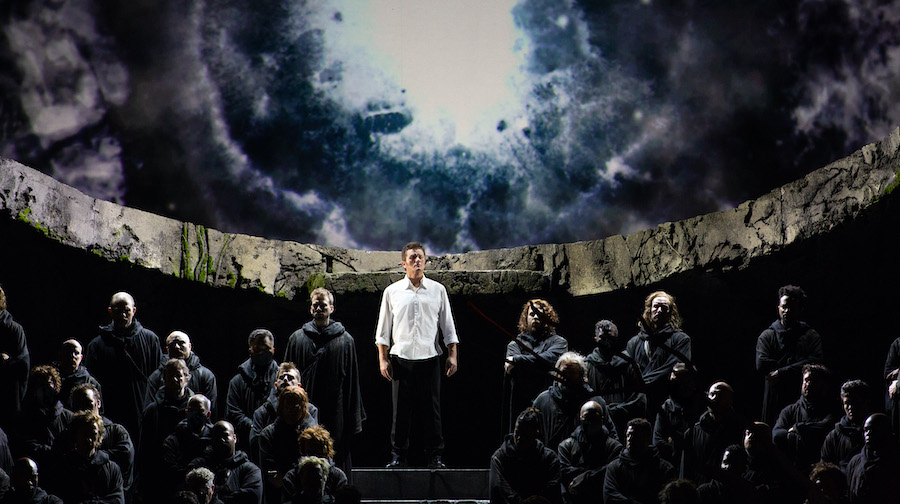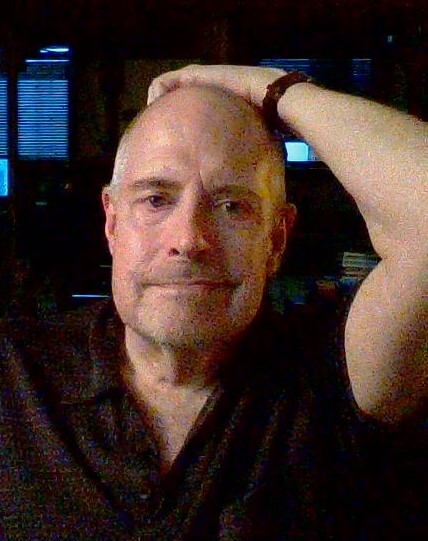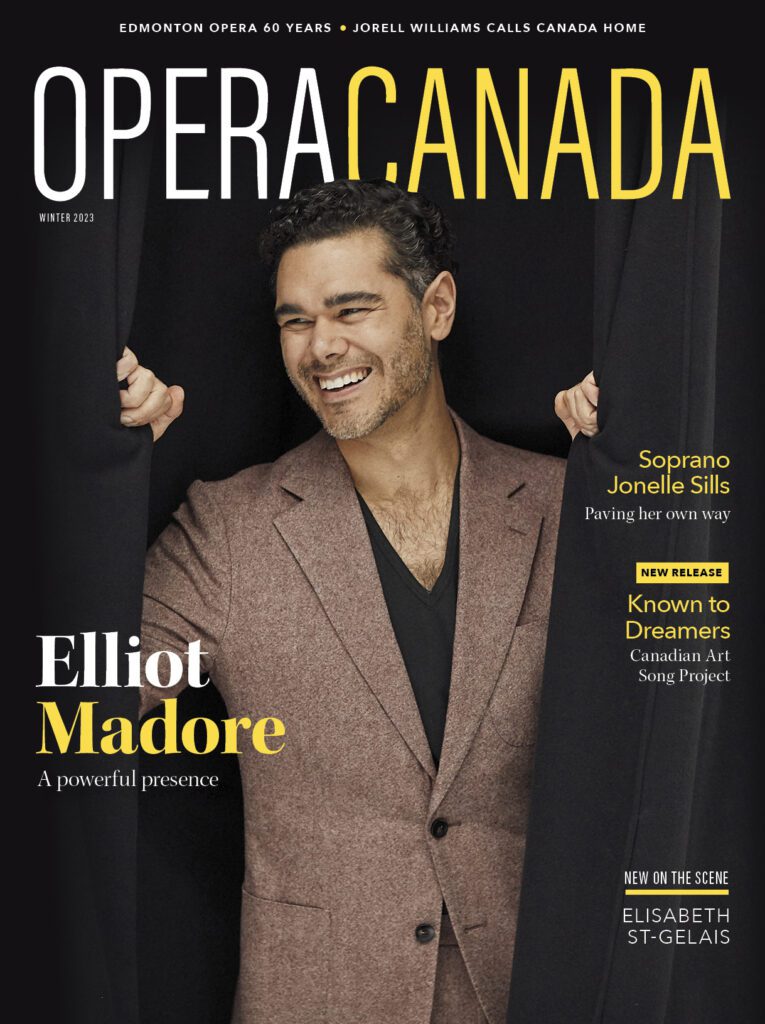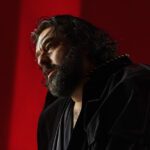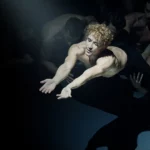I didn’t much care for his Parsifal, and I liked his Flying Dutchman even less, but at the first intermission of Canadian François Girard’s new Metropolitan Opera Lohengrin (2 March) I had high hopes for its success. Tim Yip’s set was striking—what looked to be some murky underground gathering place, with gnarled roots and branches intruding eerily and a large ovoid opening in its roof, through which were visible projection designer Peter Flaherty’s ever-changing skyscapes—moon, stars, and clouds, the latter louring ominously as Lohengrin first intoned his warning to Elsa: “Never shall you ask me my name . . .” Günther Groissböck’s bald-pated King Heinrich and his subjects looked plausibly medieval in their long, dark robes: the white-robed Elsa’s long tresses were a proper Wagnerian blond; and when, in the white shirt and black trousers familiar from Girard’s Parsifal, Piotr Beczala’s Lohengrin made his entrance from the skylight, even without a discernible swan the effect was aptly otherworldly. Yannick Nézet-Séguin, after a luminous account of the prelude (accompanying Flaherty’s many-moons-are-passing light show), kept his wonderful orchestra and chorus sounding alert and alive (the four onstage trumpeters were a special treat), although toward the act’s end, in the ensemble following “Mein Herr und Gott,” there were worrisome signs of his penchant for drowning his singers. And very good singers they were: musically this was indeed a classy show.
But right from its curtain rise, act 2 brought problems. The opening of this act, dramatically and, very audibly, musically, belongs to Ortrud and Telramund—so what was King Heinrich doing a few feet above them, center-stage, gesticulating distractingly? Why did Nézet-Séguin bury the plotting couple’s important exchanges during Elsa’s “Euch Lüften”? Why didn’t Elsa escort the duplicitous Ortrud into the “castle,” as Wagner wished? Why were the chorus and extras forever, and tediously, marching back and forth, as if in some cheesy high-school pageant? Why was all the action (such as it was) placed so relentlessly downstage? How was it that the set and costumes looked drabber and uglier than they had in act 1?
Act 3 brought further disappointments. Outdoing his incongruous act 2 opening, here Girard, to the joyously celebratory wedding prelude, plopped Ortrud downstage center, casting spells in a cloud of dry ice like a semicomic Ježibaba in Rusalka—a ridiculous intrusion. (Poor Christine Goerke was ill-used throughout, with direction that seemed to boil down to “When in doubt, wave your arms.”) Girard’s bridal-chamber scene—with, of course these days, no nuptial bed in sight—had not a smidgen of tender intimacy. The high-school pageantry resumed; the colour-coded inside-and-out of the costumes became even more tiresome; and Nézet-Séguin continued, here and there, to favour decibels over the perhaps tiring lungs and vocal cords of his singers.
Still, the sounds the orchestra made were often glorious, and on a purely musical level this Lohengrin proved gratifying. Tamara Wilson sang a fine Elsa, with more power at her disposal than one often hears in the role, if without the special radiance and Innigkeit of a singer like Elisabeth Grümmer, my first and still most cherished Elsa; and Goerke tackled Ortrud head-on, though her “Entweihte Götter” fell victim to her conductor’s quadruple-forte overdrive. Allowing for a few hard-pressed top notes, Groissböck was a strikingly authoritative Heinrich; and baritone Brian Mulligan intoned the Herald’s pronouncements with similar command. Making an unscheduled eleventh-hour Met debut in place of Evgeny Nikitin, Florida-born Thomas Hall sang and acted a splendid Telramund, his handsome bass-baritone standing sturdily up to the occasional orchestral onslaught. And while he didn’t efface my memories of the honeyed Sándor Kónya (my first Met Lohengrin) or the ethereal Klaus Florian Vogt (my most recent), Beczala proved a worthy successor, his medium-weight tenor sculpting the vocal lines with care and ringing out up top as needed. If only he—and everyone else onstage—had had a more cogent production to frame them!
Related Content ⬇
Opera Canada depends on the generous contributions of its supporters to bring readers outstanding, in-depth coverage of opera in Canada and beyond. Please consider subscribing or donating today.
SEE IT LIVE IN THEATRES
MARCH 18, 2023
DETAILS HERE
METROPOLITAN OPERA
FEB 26 to APR 1 2023
WAGNER LOHENGRIN
CAST AND CREATIVE TEAMS
CONDUCTOR Yannick Nézet-Séguin
ELSA Tamara Wilson
ORTRUD Christine Goerke
LOHENGRIN Piotr Beczała
TELRAMUND Thomas Hall
HERALD Brian Mulligan
HEINRICH Günther Groissböck
PRODUCTION François Girard
SET AND COSTUME DESIGNER Tim Yip
LIGHTING DESIGNER David Finn
PROJECTION DESIGNER Peter Flaherty
CHOREOGRAPHER Serge Bennathan
DRAMATURG Serge Lamothe
Metropolitan Opera Orchestra and Chorus

